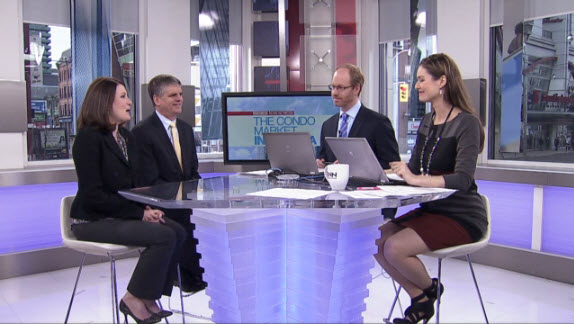What to look for when buying a condo
Wednesday, October 2nd, 2013Condo shopping can be overwhelming – a pre-shopping checklist can help limit your stress and visits to show homes.
To create such a list, start by visiting presentation centres and model units in person. Although the Internet is a great place to do some basic research, you will learn much more by assessing the quality of materials and construction in person. This will also give you a chance to ask your questions and evaluate the quality of the responses you get. Be consistent with the questions you ask in the showrooms so you can make accurate comparisons.
When visiting, try to speak with the show home’s specialist who assists buyers with their design choices, as they are often present. Take advantage of their expertise regarding upgrades and options. This will be helpful even if you eventually settle on another development.
Before visiting, make a list of those amenities that are important to you and that you are likely to use. Remember, the cost of amenities is embedded in the condo price and the cost of maintaining them in the condo fees.
Some questions to be answered:
• Who is buying units in the condo — singles, couples, students, young families, retirees? This will determine the condo’s culture. Be careful if the units are being sold to investors as rental units; tenants as a group may be less invested in keeping the property up and more frequent turnover will subject the common areas to wear and tear.
• Consider “curb appeal.” Is impressing your visitors with a beautiful facade, entry foyer and other common areas important to you? Not every condo owner cares about the width of the corridors or the decor in the elevators, but many do.
• Is there adequate and convenient visitor parking? A good way to deter friends from coming by is making parking difficult.
• Are the elevators fast and adequate for the size of the building? This is particularly important if you want to be on a higher floor.
• Parking is key. Consider ease of access, adequate space for your car and ease of egress into traffic. Fighting your way into rush-hour street traffic can get old quickly; on the other hand, you may be on a schedule that lets you avoid rush hours.
• It may be wise to purchase a parking space or two even if you don’t have cars — they can become more valuable over time and can always be sold. Parking spaces can be significant inducements when reselling.
• Check out the storage lockers for size, location and internal organization. You don’t want to have to unpack the whole locker just to get at your suitcases in the back.
• Location, location, location. As for all real estate, condo location is paramount. However, there are many factors that determine the value of a given location to a given purchaser. Convenience generally plays a significant role and convenience is a very personal thing. Some of the following points will help clarify this.
• When examining floor plans and fact sheets, make sure you understand the positives and negatives of the layout. If you have trouble visualizing this, educate yourself by quizzing the people representing the various developments about their layouts. You will soon be doing this automatically when you see a floor plan.
Flow is very important, especially if you are used to bigger spaces. Make sure the room sizes meet your requirements. This should include the kitchen, which needs to be more comprehensive if you plan to cook or entertain. Of course, some facilities have beautiful entertaining spaces and catering services. You might prefer this format.
• If cooking is a priority, find out which appliances are included and check them out. If they don’t measure up you may need to upgrade.
• Is a balcony important and will you actually use it? If you plan to garden, make sure you know the rules governing your balcony use. If you have no interest in balcony living, smaller is better than larger as it will save you money and upkeep.
• Are your critical amenities readily accessible? Of course, accessibility will depend on your level of mobility — committed walker, cyclist or driver. Some may require facilities within their condo complex.
• Make sure you know how bright your condo will be and determine how important this is to you. Orientation of principal rooms and window height are the two biggest factors.
• Does the level of security offered meet your expectations? This applies to building access, garage surveillance, and elevator and corridor security.
• Concierge service is both a security and a convenience factor. What will the concierge do for you and during what hours? If you travel a lot, this becomes more important — who accepts the deliveries and brings in the mail?
• What are the rules about pets, both yours and neighbours? How long does it take to get Fido to the grass and what do you do in winter? Or perhaps you don’t want to interact with pets on a regular basis.
• Is the condo on a flight path or adjacent to high tension transmission lines? This may not be important to you personally but may become an important issue on resale.
• Are there lighted recreational facilities nearby that may generate noise in the evening?
• Are there local events such as exhibitions or sports events that may overwhelm traffic circulation intermittently?
Source: Marilyn Wilson, Marilyn Wilson Dream Properties Inc., Ottawa




